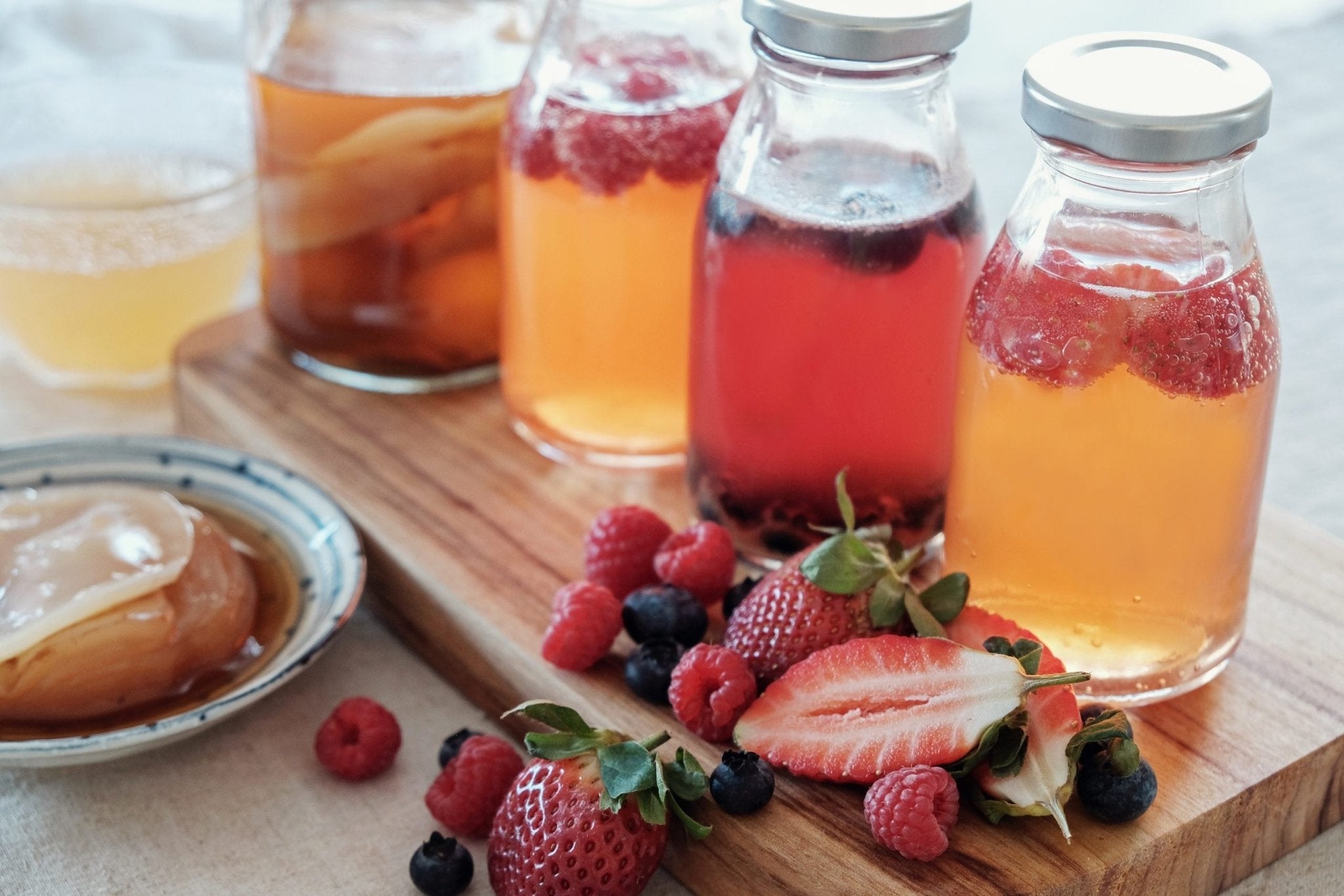
Why is Kombucha Good for You?
Wine making dates back over 6,000 years to ancient Armenia during Biblical times. Beer making is almost as old, its origins traced to the Zagros Mountains of Iran some 5,000 years ago. Another ancient beverage that remains relevant to this day is kombucha.
Kombucha is a fizzy fermented beverage made from tea and sugar with a dose of bacteria to move things along. While it may not sound appetizing by that description, kombucha is loaded with health benefits, and has a unique flavor you’re sure to love.
But why exactly is kombucha good for you, and how does it compare to other bubbly beverages?
 Gluconic acid, an organic acid produced through fermentation, acts as a natural detoxifier. It bonds to toxins so they can be excreted from the body more efficiently. The B vitamins found in kombucha (particularly vitamin B12) have been shown to increase energy levels, enhance mood, and improve mental well-being. Drinking kombucha may also help fight off the bad bacteria and other pathogens that make you sick.
Gluconic acid, an organic acid produced through fermentation, acts as a natural detoxifier. It bonds to toxins so they can be excreted from the body more efficiently. The B vitamins found in kombucha (particularly vitamin B12) have been shown to increase energy levels, enhance mood, and improve mental well-being. Drinking kombucha may also help fight off the bad bacteria and other pathogens that make you sick.

What Health Benefits Does Kombucha Provide?
Though it may not date as far back as beer or wine, kombucha still has an impressive 2,000-year history. And it is known in China as the “Immortal Health Elixir.” This fizzy beverage consists of black tea and sugar, but what takes it from boring to bubbly is - bacteria. Probiotics or healthy bacteria take sweetened black tea and, through the power of fermentation, turn it into kombucha. So, what are some of the benefits that kombucha has to offer? First and foremost, the probiotics found in kombucha can help heal your gut, boost your immune system, and regulate your digestion. Kombucha is also rich in antioxidants. That protect your cells from free-radical damage and fight inflammation throughout the body. These benefits may help reduce your risk for chronic diseases like:- Diabetes
- Asthma
- Heart disease
- Cancer
 Gluconic acid, an organic acid produced through fermentation, acts as a natural detoxifier. It bonds to toxins so they can be excreted from the body more efficiently. The B vitamins found in kombucha (particularly vitamin B12) have been shown to increase energy levels, enhance mood, and improve mental well-being. Drinking kombucha may also help fight off the bad bacteria and other pathogens that make you sick.
Gluconic acid, an organic acid produced through fermentation, acts as a natural detoxifier. It bonds to toxins so they can be excreted from the body more efficiently. The B vitamins found in kombucha (particularly vitamin B12) have been shown to increase energy levels, enhance mood, and improve mental well-being. Drinking kombucha may also help fight off the bad bacteria and other pathogens that make you sick.
How Does it Compare to Other Bubbly Beverages?
Whether you’re looking for a low-calorie alternative to carbonated soda or you’re trying to cut back on sugar, kombucha is an excellent alternative. A 16-ounce bottle of kombucha contains just 60 calories with only 20 mg of sodium and four grams of sugar. In comparison, a 12-ounce can of Coca-Cola contains 140 calories with 45 mg of sodium and a whopping 39 grams of added sugar. But how does kombucha compare to other fermented beverages like beer, wine, and spirits? Technically speaking, kombucha does contain a small amount of alcohol as a byproduct of fermentation, but only about 0.5 per cent for most commercial brands. For reference, light beer like Budweiser is about five per cent alcohol by volume (ABV). Wines range from five per cent to 21 per cent ABV. Sweeter wines like Moscato and Riesling are at the lower end of the scale and dessert wines like port at the other end. Most liquors are in the 30 per cent to 45 per cent range.
So, what's your favorite flavor of kombucha?

